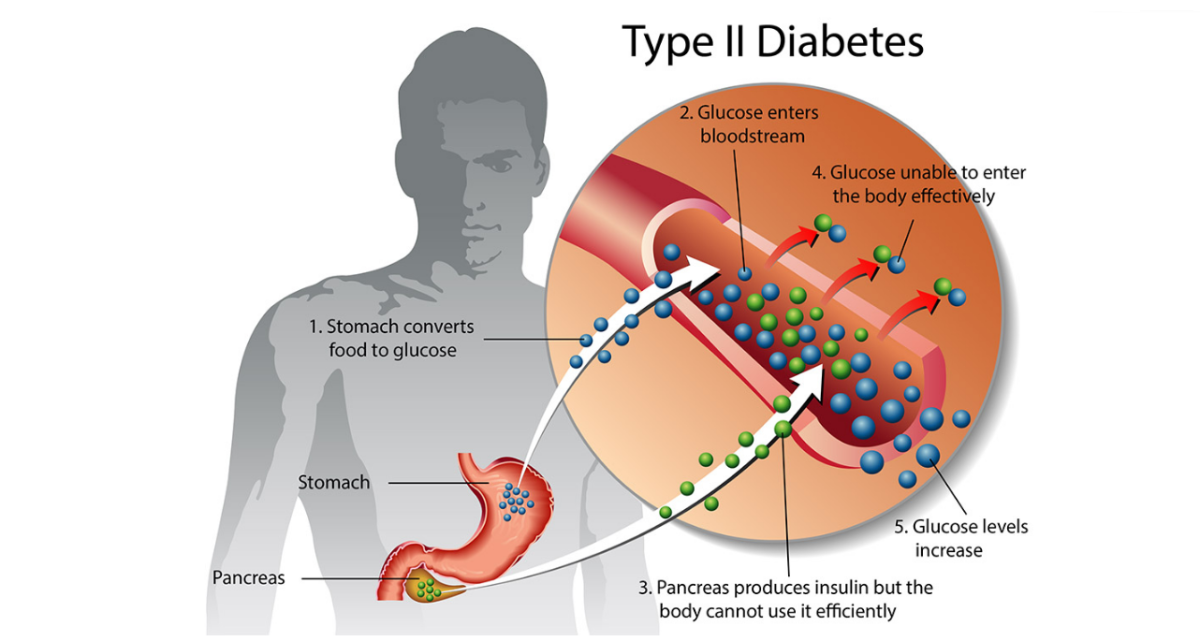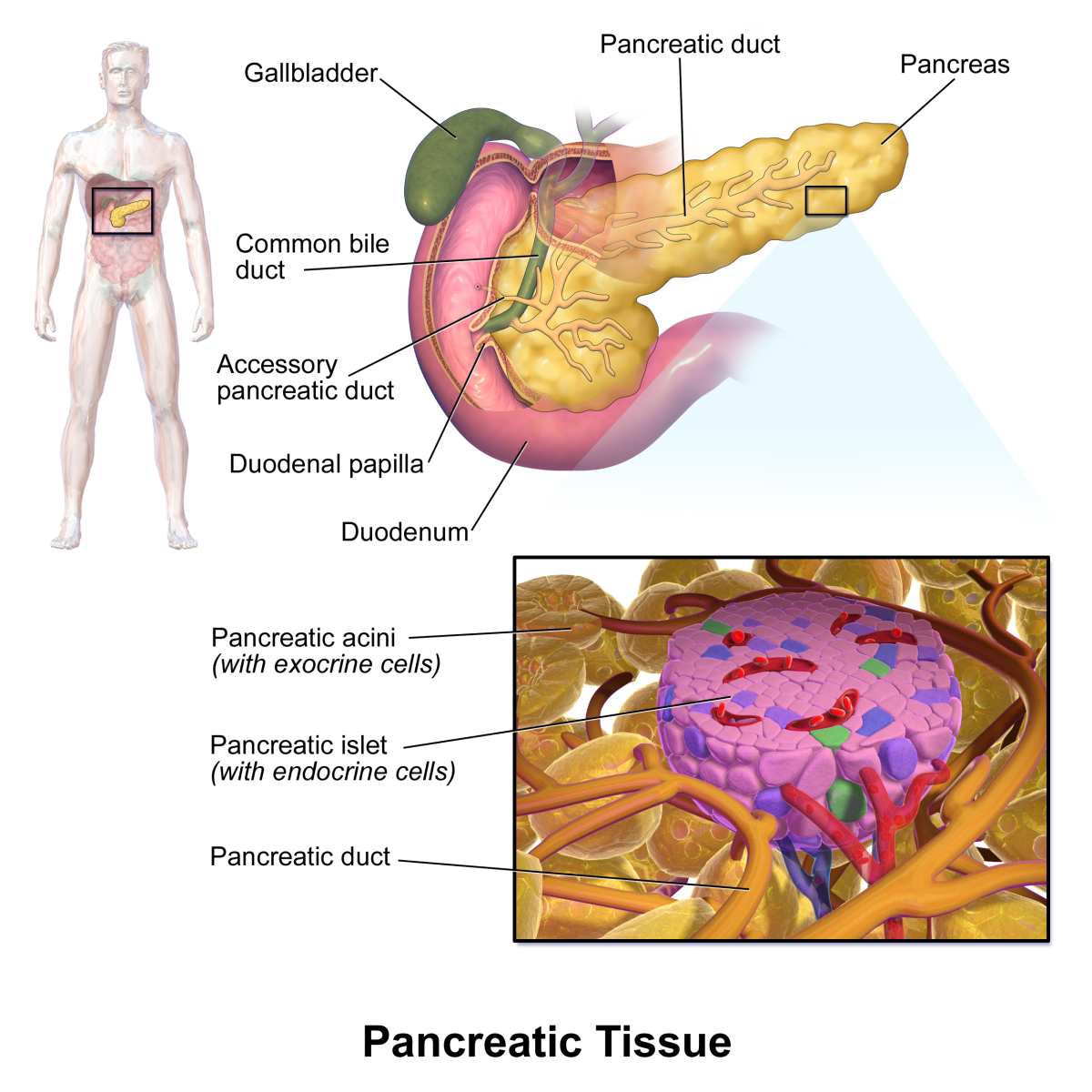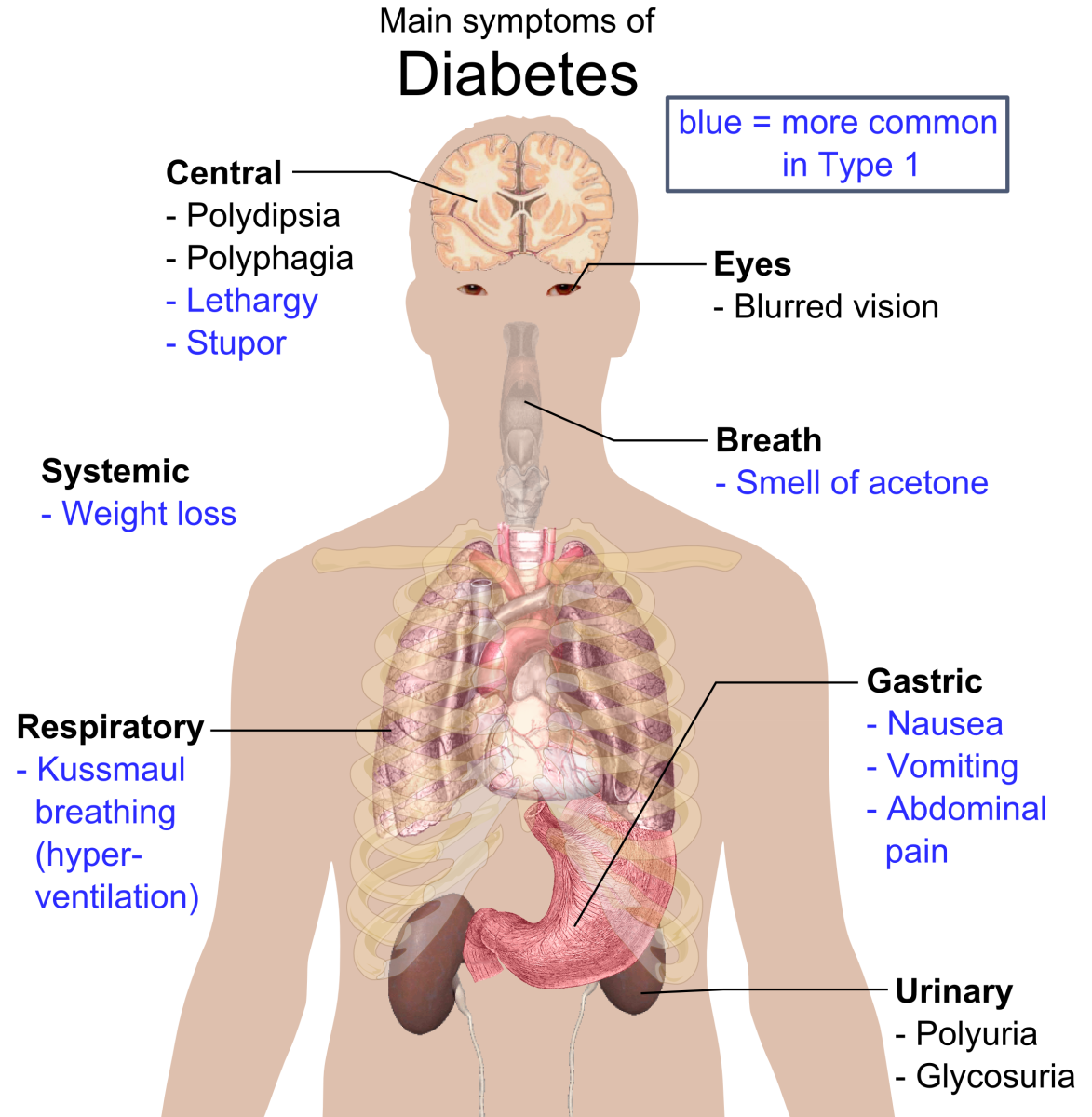SOME FACTS ABOUT DIABETES
SOME FACTS ABOUT DIABETES
What is diabetes ?
Diabetes is also known as diabetes mellitus, it is a disease of abnormal carbohydrate metabolism in which glucose cannot enter the body's cells and be utilized by the body therefore they remain in blood stream in high concentrations. "Mellitus" is a latin word which means "honey," and is just appropriate since the urine of patients with diabetes mellitus has a sweet taste. The excess sugar in the blood , a condition known as "hyperglycemia" leads to the excretion of sugar in the urine known as "glycosuria."
Types of diabetes
Diabetes mellitus type I (formerly known as juvenile onset diabetes )
This type of diabetes is caused by deficiency of the pancreatic hormone "insulin," whose chief function is to promote the entry of glucose into cells.
Diabetes mellitus type II (formerly known as maturity onset diabetes)
In the case of type II diabetes mellitus, insulin is available but cannot be properly utilized.
In type I diabetes, the beta cells which is responsible for producing insulin are destroyed, possibly due to the attack of body's own immune system or by virus infection. Victims of type I diabetes require daily insulin injection in order to survive. Insulin must be injected rather than taken orally because it is inactivated by the enzmes of the digestive system. Without applying insulin therapy, a patient with type I diabetes will deteriorate into a condition known as "ketosis" in which there is much presence in the blood of ketone bodies and "acidosis" (dangerously acidic blood ph) . Ketoacidosis, the combined condition of ketosis and acidosls leads rapidly to coma and death in the untreated diabetic.
Type II diabetes is the more common form of diabetes mellitus. It usually occur after the age of 30. The initial symptoms of type II diabetes are much less noticeable than those of type I. For this reason, type II diabetes can exist undetected for long periods.
Whereas type I diabetes is a disease of insulin deficiency, victims of type II diabetes have insulin in their bloodstream. However, since the cells of type II patient do not respond to insulin by taking in and utilizing blood glucose as normal cells would, type II diabetic may suffer from hyperglycemia in spite of high insulin levels.
The possible cause for this defect is that the cells have specific receptor molecules in their surface membranes whose job is to recognize insulin and activate the biochemical steps leading to glucose uptake and utilization. The number of insulin receptors on the cells can be changed by gaining or losing body weight. The more body fat a person carries the fewer insulin receptors there will be in the cells. Thus is the reason why type II diabetes is mainly a disease of the obese, and why weight reduction is such an effective therapy. High glucose levels also decrease the number of insulin receptors. Normalizing glucose levels is thus very important.
The most important treatment for most cases of type II diabetes consists of exercise and weight reduction. Since the cells of type II diabetics lack responsiveness to their own insulin, insulin injection therapy is used for some of these cases.
Complications of Diabetes
Both type I and type II diabetes tend to produce a number of debilitating and life threatening complications despite the use of insulin or oral hypoglycemic agents. The most common complications of diabetes are as follows :
Eye damage
Diabetes is the leading cause of non-traumatic blindness in young adults. The blood vessels of the diabetic eyes are prone to microaneurysms (small outpouching of the vessel walls) excessive vascular permeability (leakage from the vessel), growth of newer, more fragile vessels and ultimately hemorrhage. These events lead to loss of vision.
Kidney damage
In long-standing diabetes, the smallest blood vessels of nephrons (the functional filtration units of the kidney) frequently suffer the same type of damage as the blood vessels of the retina. This condition is called diabetic nephropathy. Several diabetic nrphropathy commonly leads to kidney failure. The prognosis for individuals with diabetes on dialysis is poor, with only 30% surviving beyond five years.
Premature atherosclerosis
It is also known as the hardening of the arteries . It is a condition in which arteries become progressively occluded by accumulation of cholesterol-containing plaque.
Coronary artery disease is the leading cause of death in long-term diabetics, accounting for 75% of fatalities.
Nervous system abnormalities
Patients with diabetes may experience a variety of nervous system disturbances collectively referred to as diabetic neuropathy. Symptoms may include much weakness, pain in extremities, local paralysis, sexual impotence and sensations of cold, heat or tingling in various parts of the body.
Causes of diabetes
Heredity.
Heredity does operate in determining one's risk of diabetes. Genetic factors play much more important role in type II disbetes than in type I diabetes.
Virus infections.
Virus infection is strongly implicated as one causative factor in the beta-cell destruction that characterizes type I diabetes, but it is not involved in type II diabetes.
Diet.
Dietary management has been part of diabetic therapy since pre-insulin days. Recently weight reduction for victims of type II diabetes and complex carbohydrate liberalization for those of both types of diabetes have been the cornerstone of therapy.
Reducing caloric intake is believed to be beneficial for type II diabetics. The ingestion of foods high in fiber content has been shown to reduce hyperglycemia in type II diabetics.
For type I diabetics, the traditional diet is high in protein and quite restricted in carbohydrates with only about 45% of the total daily caloric intake.
SOURCE : McGraw - Hill Encyclopedia
Of Science and Technology








